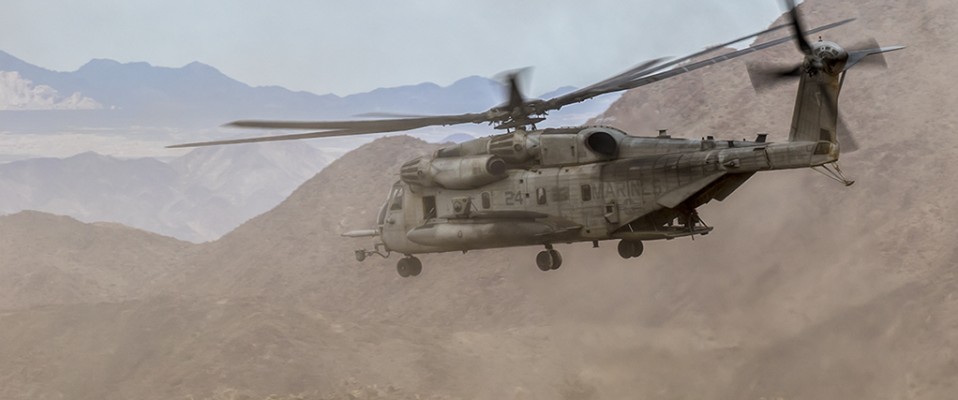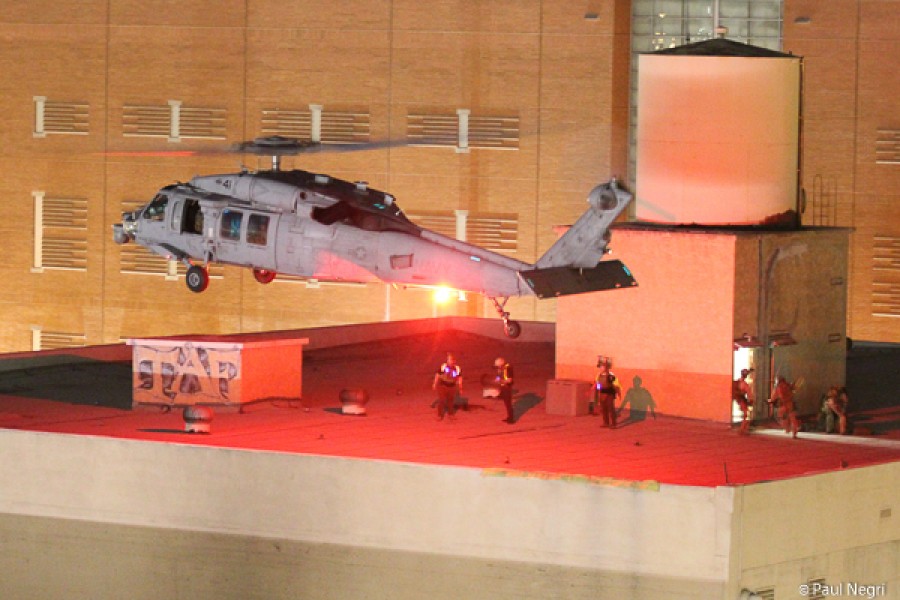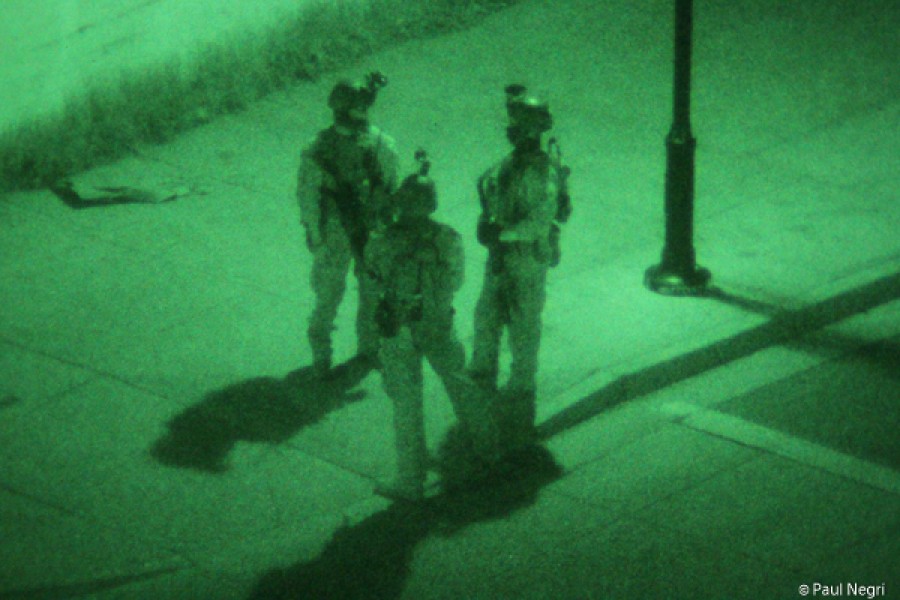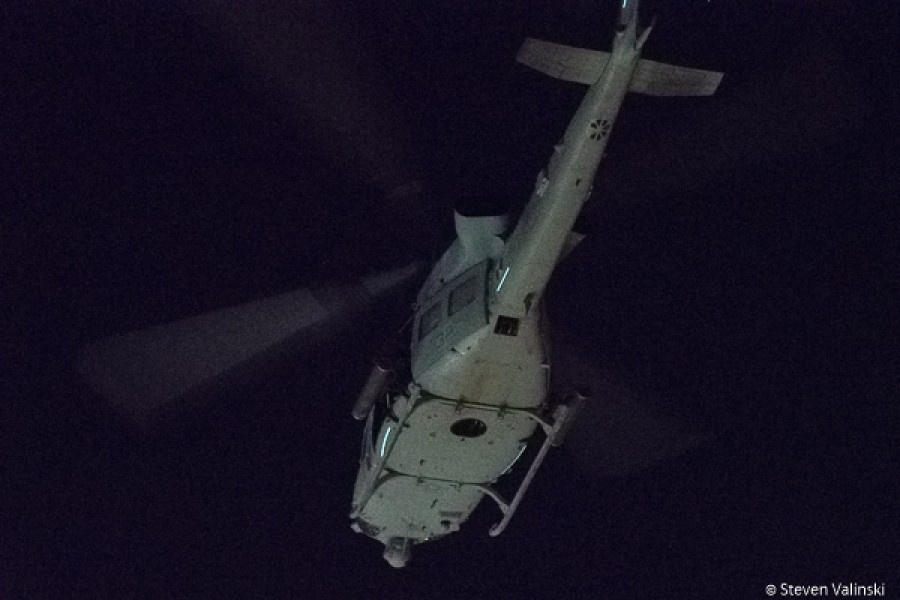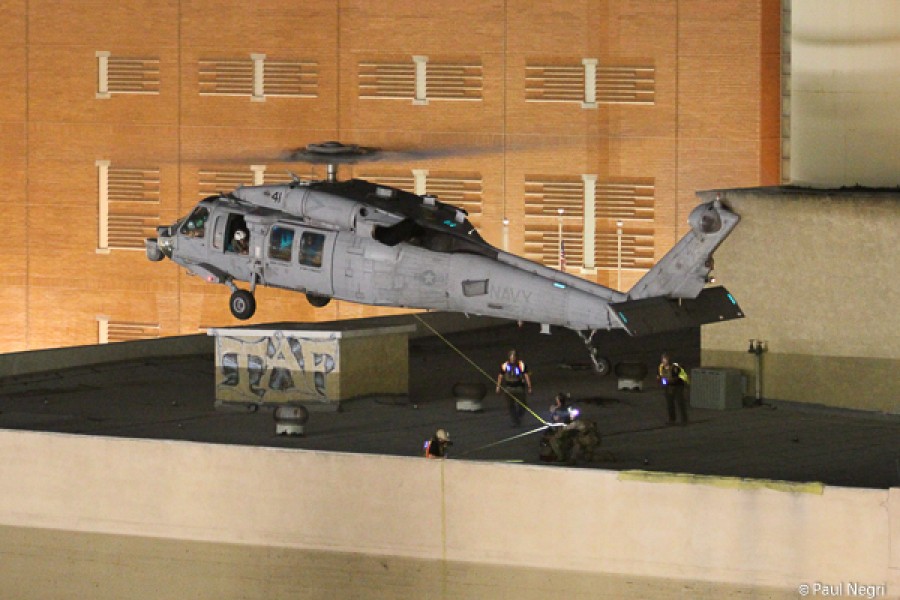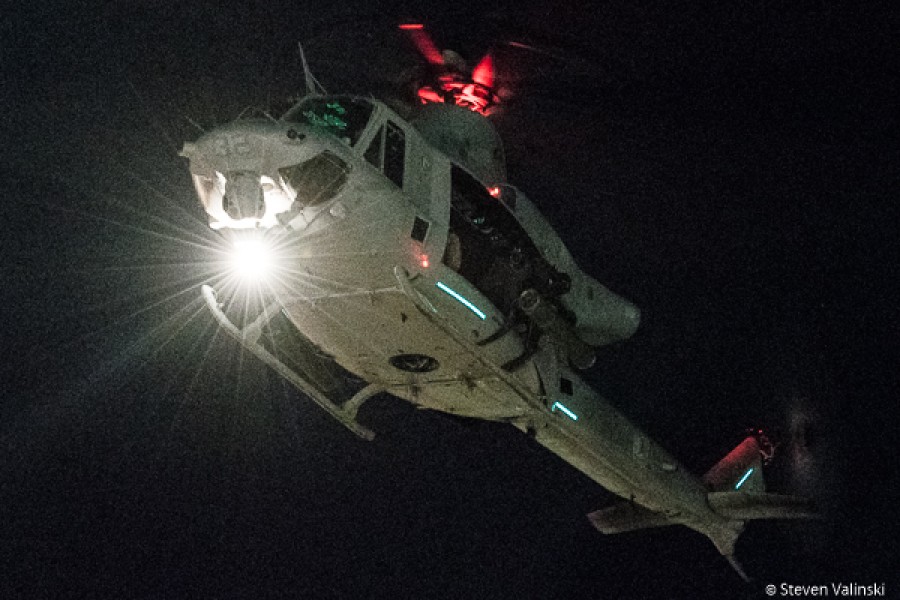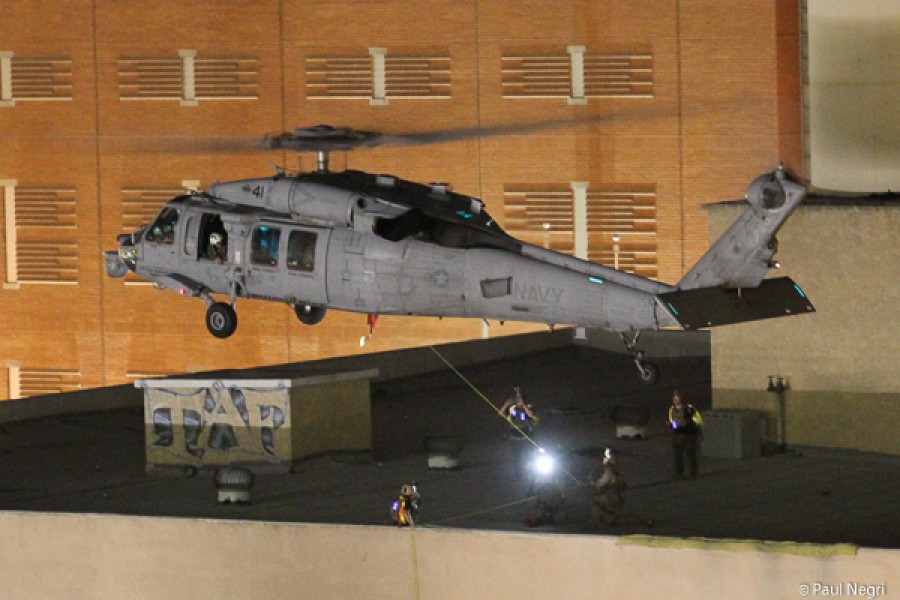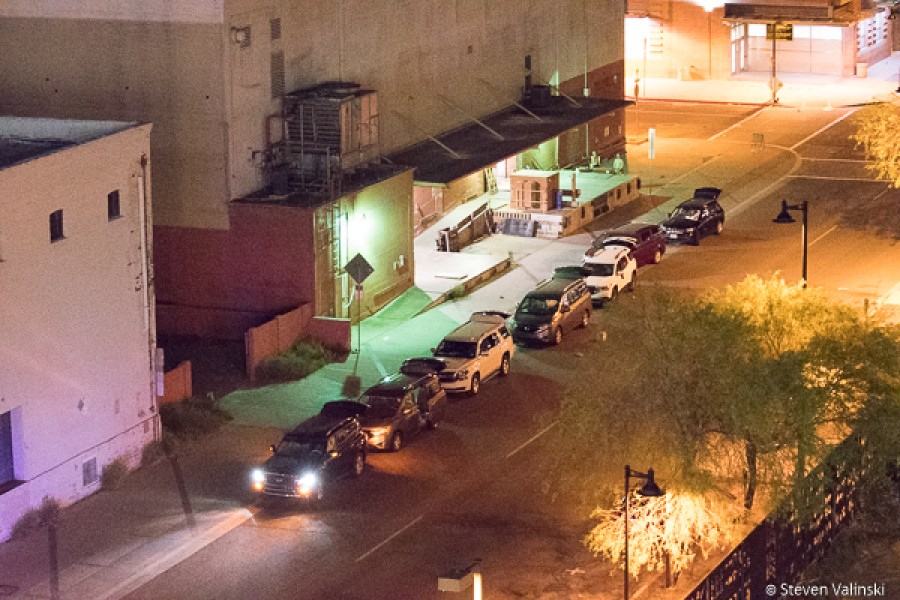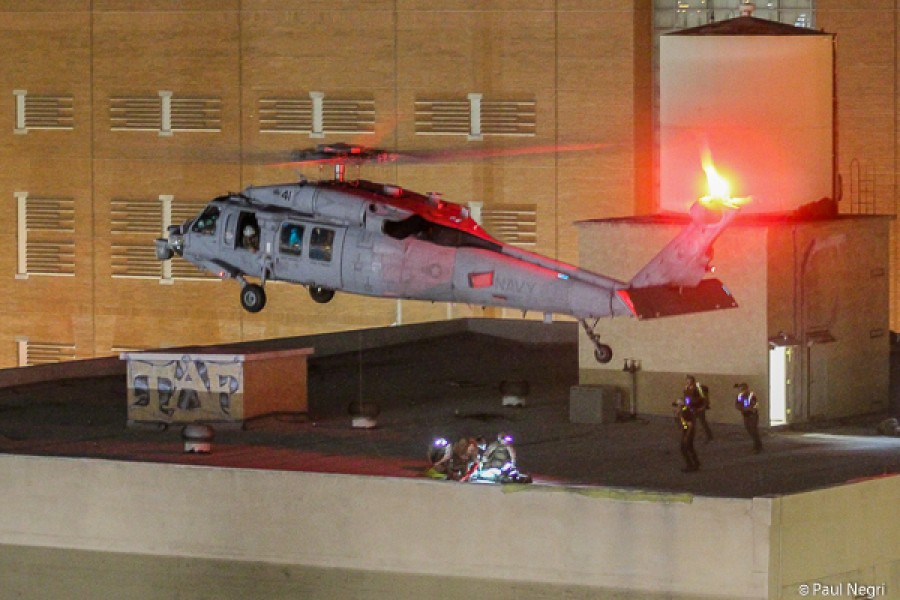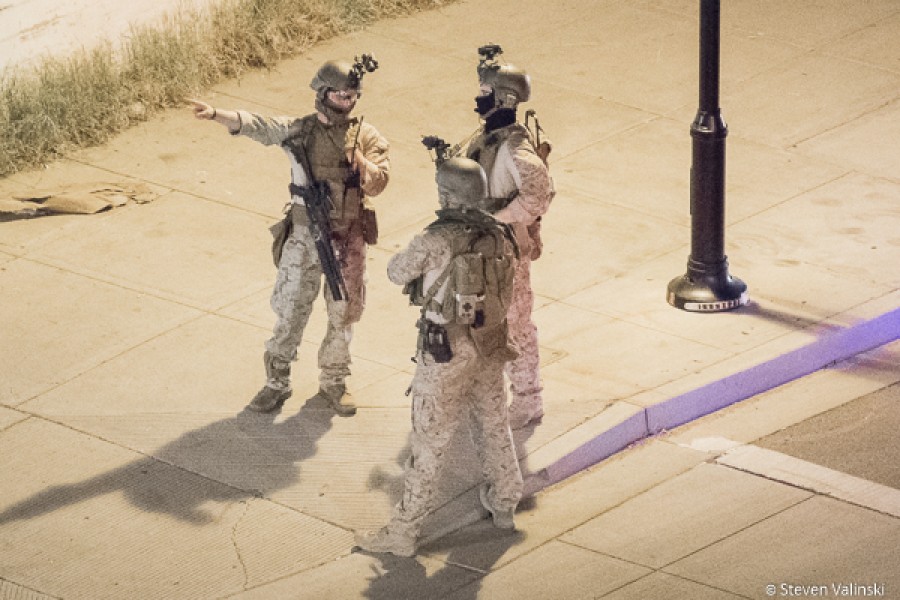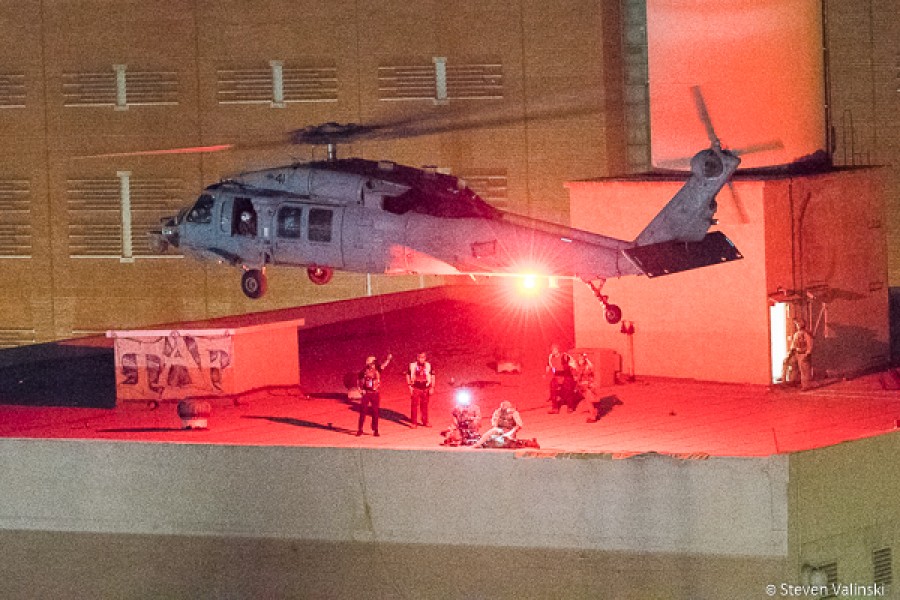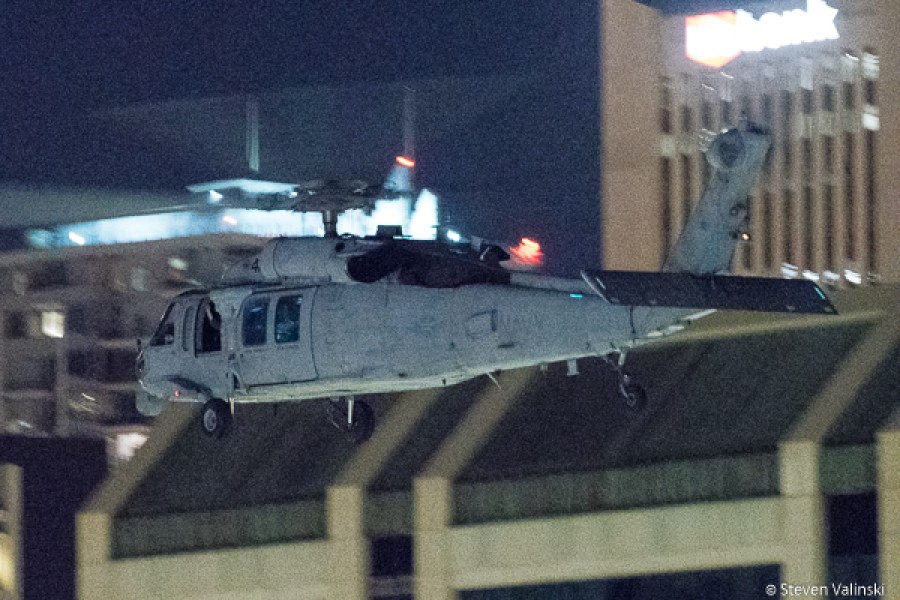The 15th MEU ACE – VMM-161 Supports Realistic Urban Training
Report and photos by Todd Miller
April 8, 2017
The 15th Marine Expeditionary Unit (MEU) is working up in preparation for their deployment this summer to the Pacific. The 15th MEU will deploy on the U.S.S. America (LHA-6) Amphibious Ready Group (ARG) which includes the U.S.S. San Diego (LPD-22) and U.S.S. Pearl Harbor (LSD- 52). The MEU is the smallest Marine Air Ground Task Force (MAGTF) numbering about 2200 Marines. MEUs are broadly capable, forward deployed forces prepared to quickly respond to a global crisis of a humanitarian or military nature.
As part of the 15th MEU’s Realistic Urban Training (RUT) the unit traveled to the Phoenix, Arizona area where the training could utilize a true urban environment.
15th MEU RUT was supported by the AH-1Z Cobra, UH-1Y Huey, MV-22 Osprey, CH-53E Super Stallion, AV-8B Harrier, and the RQ-21 BLACKJACK. The U.S. Navy also provided support on insertions/extractions with the MH-60 Knighthawk (Seahawk).
According to 15th MEU spokesperson, 1stLt Maida K Zheng: “RUT is a command and control exercise, integrating elements of the CE, ACE, Marine Raider Force (MRF), Battalion Landing Team (BLT), and LCE during the execution of Situational Training Exercises (STXs) in unfamiliar environments. As a “half blind” exercise, times, assets expected, and missions will be known, but locations will not be given until the warning order.”
One scenario, which took place at night in downtown Phoenix, presented a high-value target in a multi-story building. Marines approached the building from the ground while others were inserted via the roof by Navy MH-60s utilizing their Fast Rope Insertion/Extraction System (FRIES). Additional support was provided by UH-1Y Venoms, AV-8 Harriers and ISR aircraft. While the mission was presented to the Marines, the outcome could vary based on many variables presented during mission execution. In this case, the decision was made to extract the high-value target via the rooftop for an aerial extraction.
Lessons learned from the training help develop the MEU and future MEUs going through the training. “Discussing lessons learned is a regular occurrence after each day during an exercise, and a written document is also compiled at the end of each exercise as well. All sections of the MEU not only participate in these discussions, but contribute their input so that each exercise can be better than the last and future MEUs can build upon what the 15th MEU accomplished,” according to Lt Zheng.
– Report by Steven Valinski
– Photos by Paul Negri and Steven Valinski
The U.S. Marine Corps fields a total of 7 MEUs, 3 on the East coast (22nd, 24th, 26th MEUs), 3 on the West Coast (11th, 13th, 15th MEUs), and one permanently stationed in Japan (31st MEU). The Units on the East and West coasts rotate, one deployed, one just off deployment, and one working up to deployment.
For observers gathered on the live range at the Marine Corps Air and Ground Combat Center (MCAGCC) the first indication the exercise had started was the sound of the unseen jet aircraft at altitude sweeping the valley. Within minutes the “whump, whump” of artillery fired from miles away was heard, followed by artillery impact in the valley. VMM-161s (MCAS Miramar) UH-1Y Venom and AH-1Z Viper rolled into the valley and cycled the area, periodically making rocket runs and raining lead.
MV-22B Ospreys fully loaded with Marines from the Battalion Landing Team (BLT) came into the valley flying under active artillery fire (pounding simulated targets on the outskirts of the village). The MV-22Bs landed and disappeared into clouds of dust, effectively obscuring the Marines as they disembarked. CH-53E Super Stallions appeared firing flares, and dropped into their landing zone. The conditions demonstrated the reality of what both man and machine must contend with in their design environment. This was no airshow. High temps, full loads, and “brown out” conditions when landing in the field. This is the norm; in the heat, the dirt, fully loaded, and in other circumstances landing on ships, night flying with NVGs, high altitudes, full loads, all with the very real potential of taking live fire. The aircraft crews of VMM-161 made it look second nature. This is their office.
Once the Marine BLT off loaded, they found gravity in their own element. Fire teams quickly located and engaged simulated adversaries with suppressing fire. Mortar teams were established and drew the attack perimeter closer to the urban area. A fire team used anti-tank missiles to take out simulated armor, and on command BLT 5/1 unleashed a wave of steel rain on the urban environment. Marine squads and fire teams moved forward under cover to begin the meticulous effort to clear the urban area of threats. Breach charges obliterated doors, flashbangs stunned potential adversaries and heavy fire resonated as every corner was cleared. All the while the Marines navigated improvised explosive devices (IEDs) and a variety of booby traps.
This is just one day in the aggressive six months of “crawl-walk-run” work-ups towards deployment of the 15th MEU.
Commanded by Col. Joseph Clearfield the 15th MEU is based out of Marine Base Camp Pendleton, CA. MEUs are scalable, composite units comprised of lethal ground combat (GCE), aviation combat (ACE), logistics combat (LCE) and command elements (CE). The 15th MEU includes the following units;
GCE, Marine Battalion Landing Team (BLT) 5/1;
ACE, Marine Medium Tiltrotor Squadron VMM-161 (reinforced);
LCE, Combat Logistics Battalion (CLB) 15.
Realistic Urban Training (RUT) provided an insight into the depth and complementary nature of resources utilized by the MEU – and demonstrated the Marine philosophy that “no force fights alone.” A variety of combat capabilities ensures MEUs have everything necessary to penetrate contested space, complete objectives and exfiltrate – or secure and hold ground.
Urban operations are only one of thirteen mission capabilities that must be mastered prior to deployment. The combined MEU/ARG is fully capable of a wide variety of missions including (but not limited to);
- Amphibious assault
- Amphibious raid
- Maritime interception Operations (MIO)/Visit, board, search, and seizure (VBSS)
- Advance force operations
- Noncombatant Evacuation Operations (NEO)
- Humanitarian assistance (HA)
- Stability operations
- Tactical Recovery of Aircraft and Personnel (TRAP)
- Joint and combined operations
- Aviation operations from expeditionary shore-based sites
- Theater security cooperation activities
- Airfield/port seizure
Utilizing a Rapid Response Planning Process (R2P2) the MEU/ARG is fully prepared to respond to a crisis and initiate a mission in as little as 6 hours. The groups capability and proximity to areas of crisis position it as a force of choice to initiate, support and or achieve directed objectives. This deployment to the Pacific appears to be tailor made for the MEU. North Korea’s ballistic missile threat and China’s militarization of the South China Sea may lead to a crisis that calls upon the broad capability of the forward deployed MEU. Hopefully, the mere presence of the MEU/ARG offshore will be an adequate deterrent to any nation inclined to act out of place.
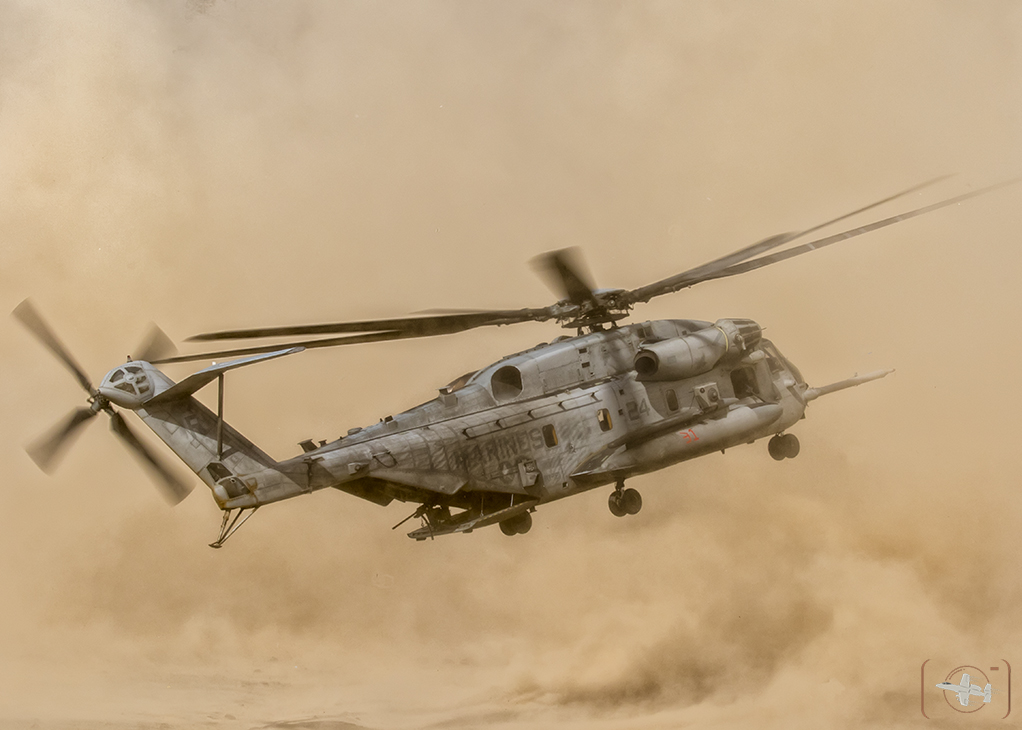
CH-53E from the VMM-161 Greyhawks of MCAS Miramar drops into its dust shroud with Marines from the 15th Marine Expeditionary Unit (MEU). The 15th MEUS live fire, Realistic Urban Training (RUT) is underway at MCAGCC Twentynine Palms, CA.
This is the maiden deployment for the USS America, a new LHA class ship designed specifically to facilitate airborne amphibious assaults. This deployment the 15th MEU will utilize the AV-8B Harrier II as the combat aircraft in the ACE. In the future deployments of the MEU/ARG will utilize the F-35B. Once the F-35B becomes part of the MEU/ARG, the unit’s capability will increase. The F-35B will identify and destroy high value threats (SAMS), engage in Electronic Attack (EA), Intelligence, Surveillance and Reconnaissance (ISR) and provide command and control (C2). The F-35Bs stealth and sensors will allow it to operate in contested airspace, significantly broadening the footprint of a MEU. When seen in combination with the MV-22 Osprey the Marines will be able to operate in contested space up to 450 miles from the ARG, and get there in under 2 hours. This distributed assault in contested space is a game changer for the MEU/ARG.
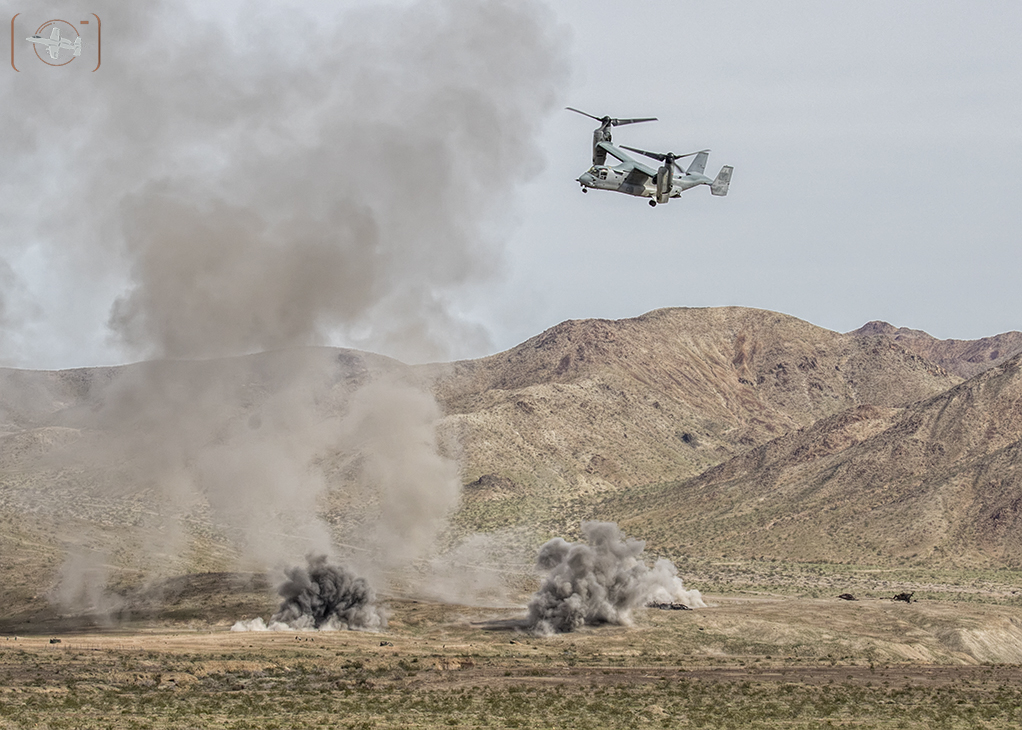
MV-22 Osprey from VMM-161 the Greyhawks of MCAS Miramar, CA full of Marines circle prior to landing – with artillery pounding positions in the distance. At the MCAGCC Twentynine Palms, CA during the 15th MEUs Realistic Urban Training (RUT) March 10, 2017.
Regardless future capability enhancements, the heart and soul of the Marines is the Infantry. Having observed BLT 5/1, I could not help but reflect on the expectations we place upon these young Marines. The Marines of the 15th MEU (and the other 6 MEUs) represent the United States of America as the providers of sustenance after humanitarian disaster, as law and order on the high seas, or as the last act of diplomacy – military force. America has entrusted them with the Nation’s weightiest responsibilities and they do America proud.
They are America’s sons and daughters, and Semper Fi they are prepared to step into the fire. There are no words that adequately express gratitude for their service.
Learn more about the MEU/ARG
Follow the 15th MEUs workup on Facebook
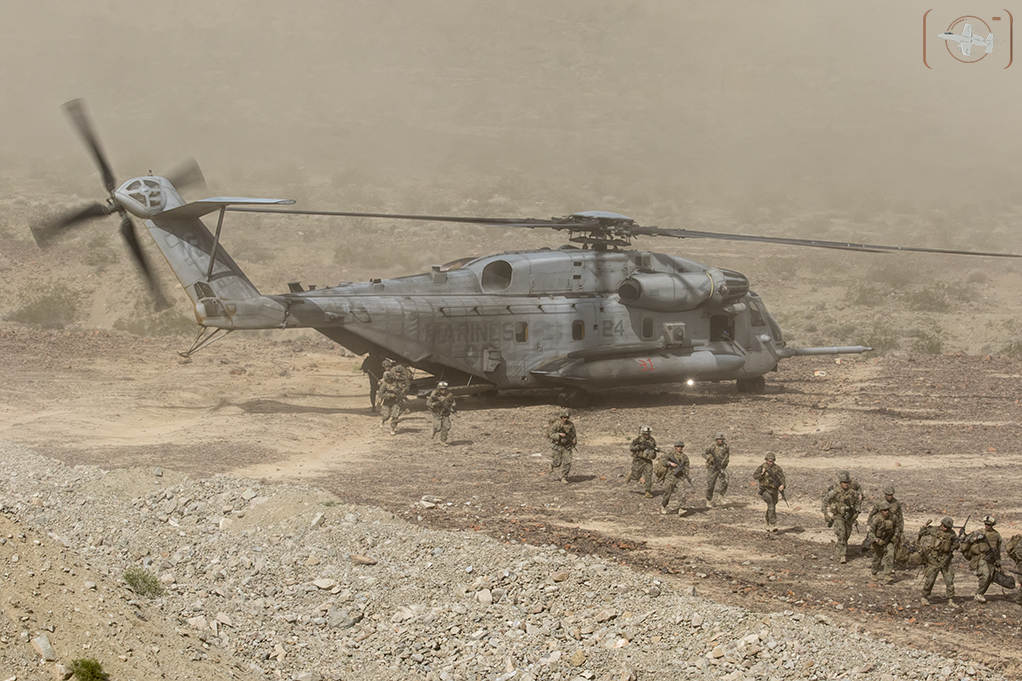
Marines from the 15th Marine Expeditionary Unit (MEU) disembark from a VMM-161 Greyhawks CH-53E Super Stallion. Taken during the 15th MEUs Realistic Urban Training (RUT), MCAGCC Twentynine Palms, CA March 10, 2017.
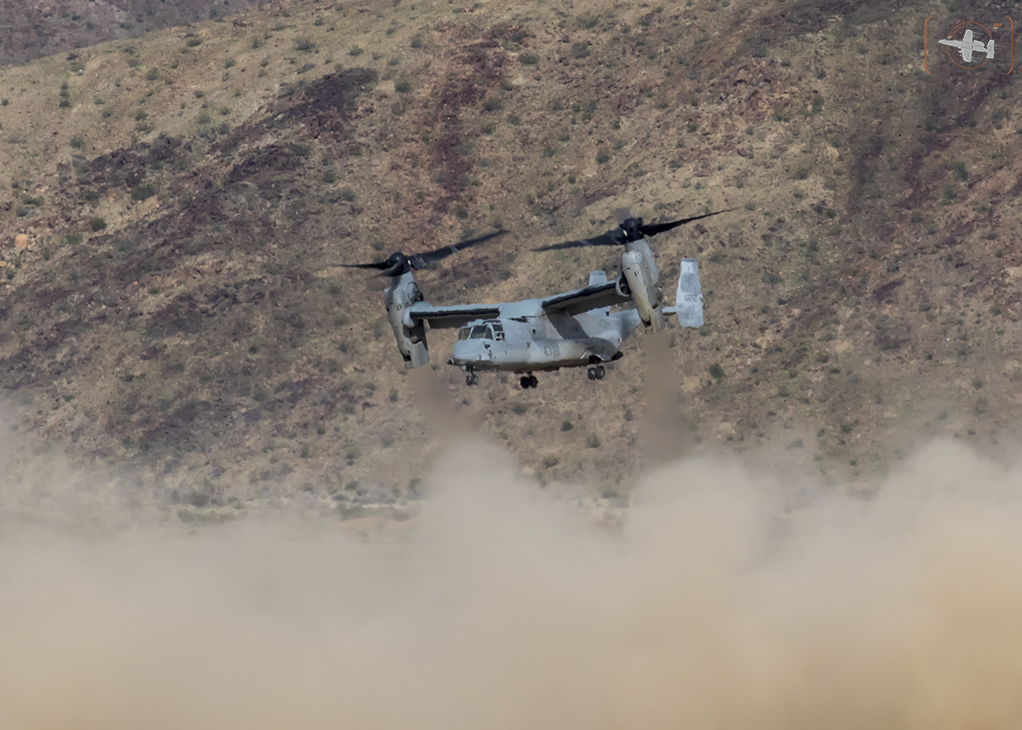
MV-22 of the VMM-161 Greyhawks (MCAS Miramar) breaks free it’s “dust screen” and accelerates up and away with a hold full of Marines from the 15th Marine Expeditionary Unit. Realistic Urban Training (RUT), MCAGCC Twentynine Palms, CA.
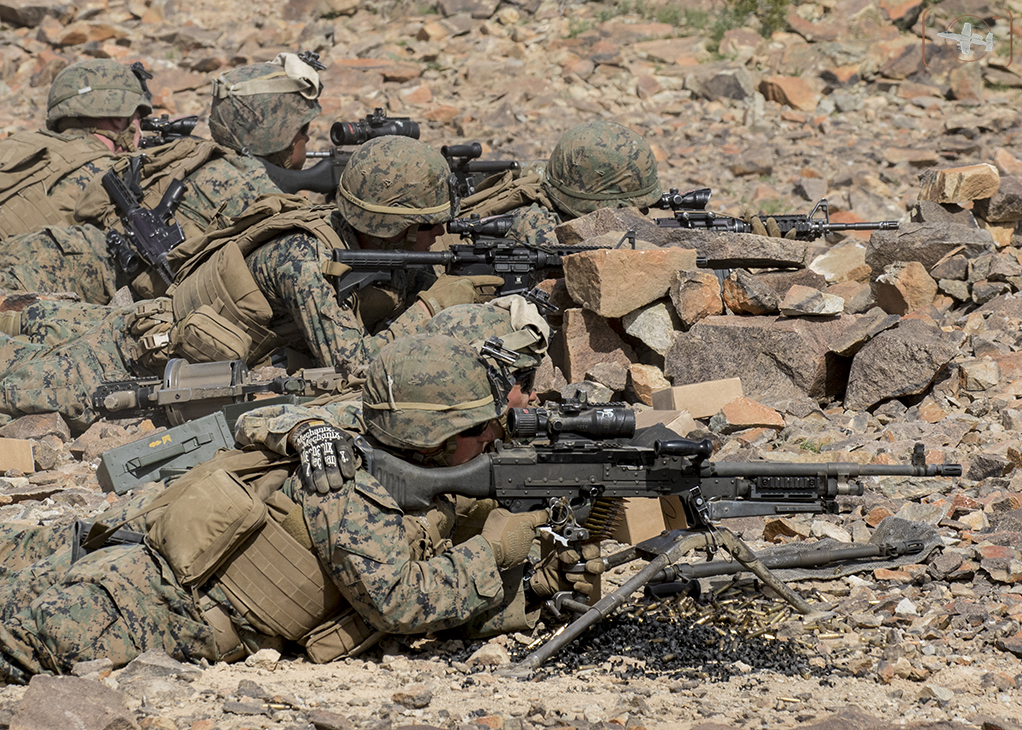
Marines from the 15th Marine Expeditionary Unit (MEU) BLT 1/5 provide suppressing fire on Urban environment during live fire exercise, Realistic Urban Training (RUT). RUT is one of the 13 missions the 15th MEU must master prior to deployment. MCAGCC at Twentynine Palms, CA March 10, 2017.
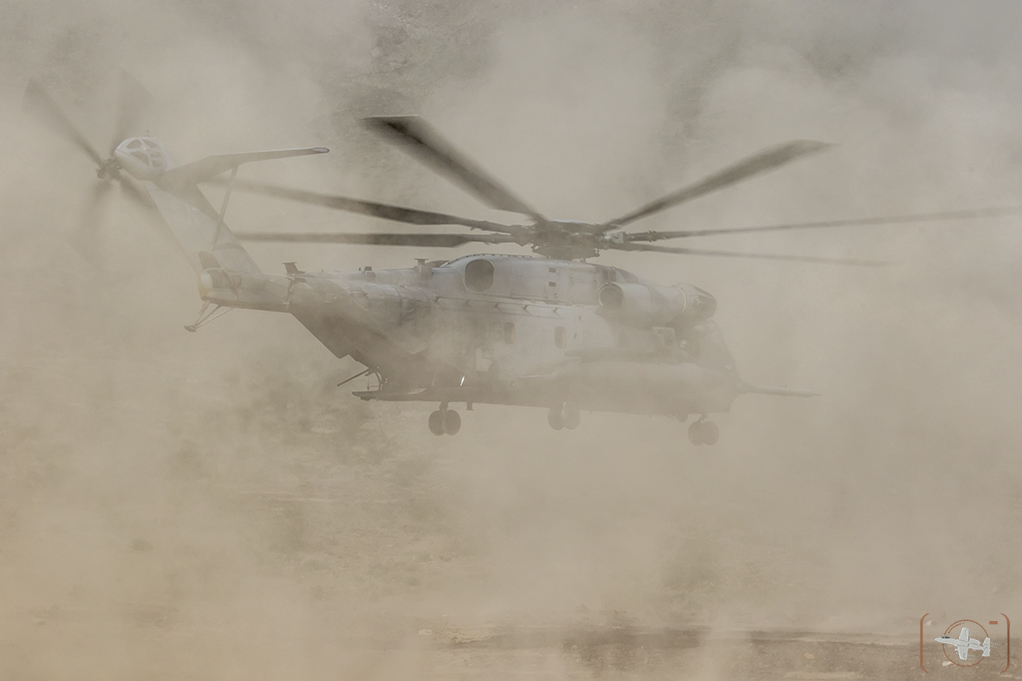
CH-53E from the VMM-161 Greyhawks of MCAS Miramar drops into its dust shroud with Marines from the 15th Marine Expeditionary Unit (MEU). The 15th MEUS live fire, Realistic Urban Training (RUT) is underway at MCAGCC Twentynine Palms, CA.
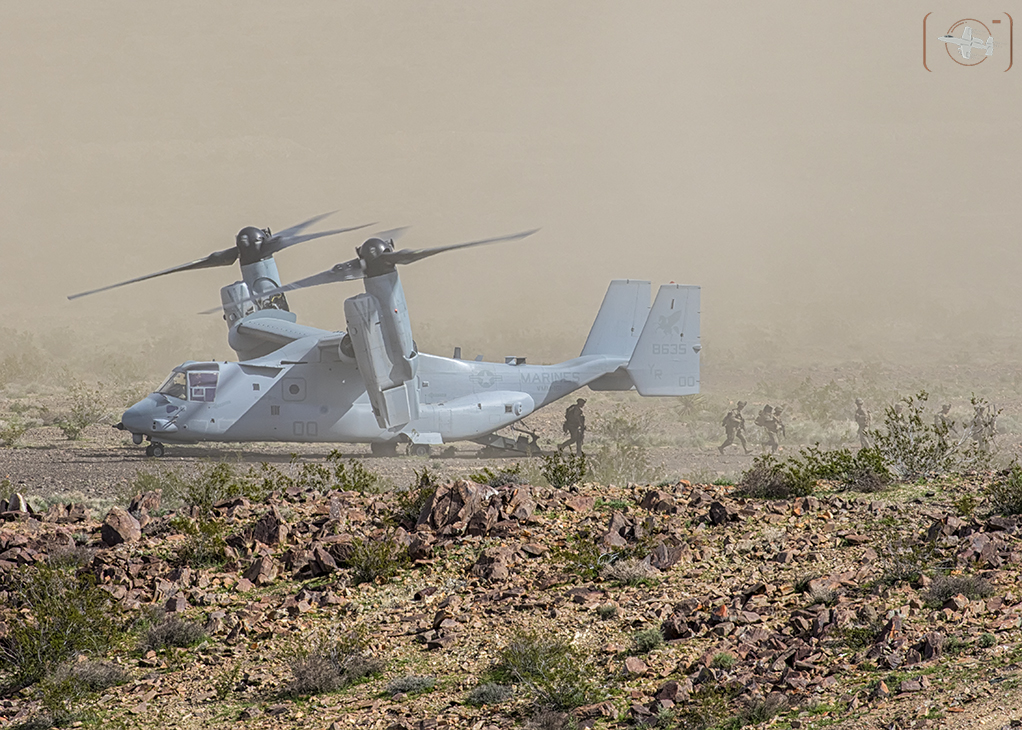
MV-22 Osprey from VMM-161 the Greyhawks of MCAS Miramar, CA disembarks Marines during the 15th MEU Realistic Urban Training (RUT). March 10, 2017.
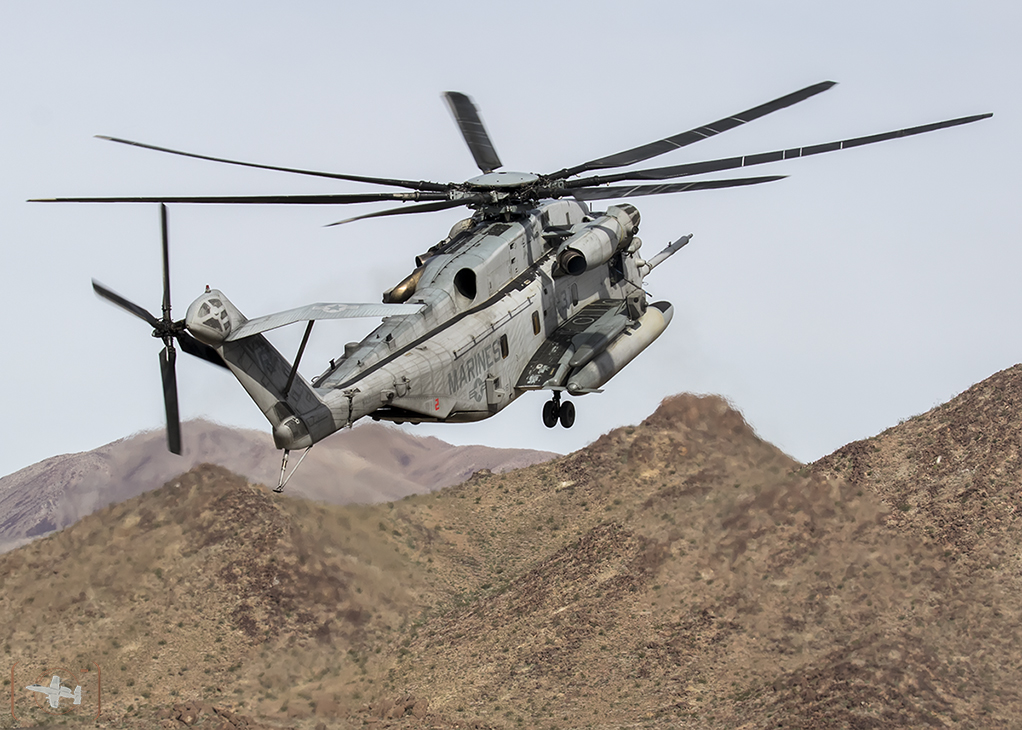
CH-53E from the VMM-161 Greyhawks of MCAS Miramar drops onto range with Marines from the 15th Marine Expeditionary Unit (MEU). Blade flex is evident as the Super Stallion descends under load. The 15th MEUS live fire, Realistic Urban Training (RUT) is underway at MCAGCC Twentynine Palms, CA.
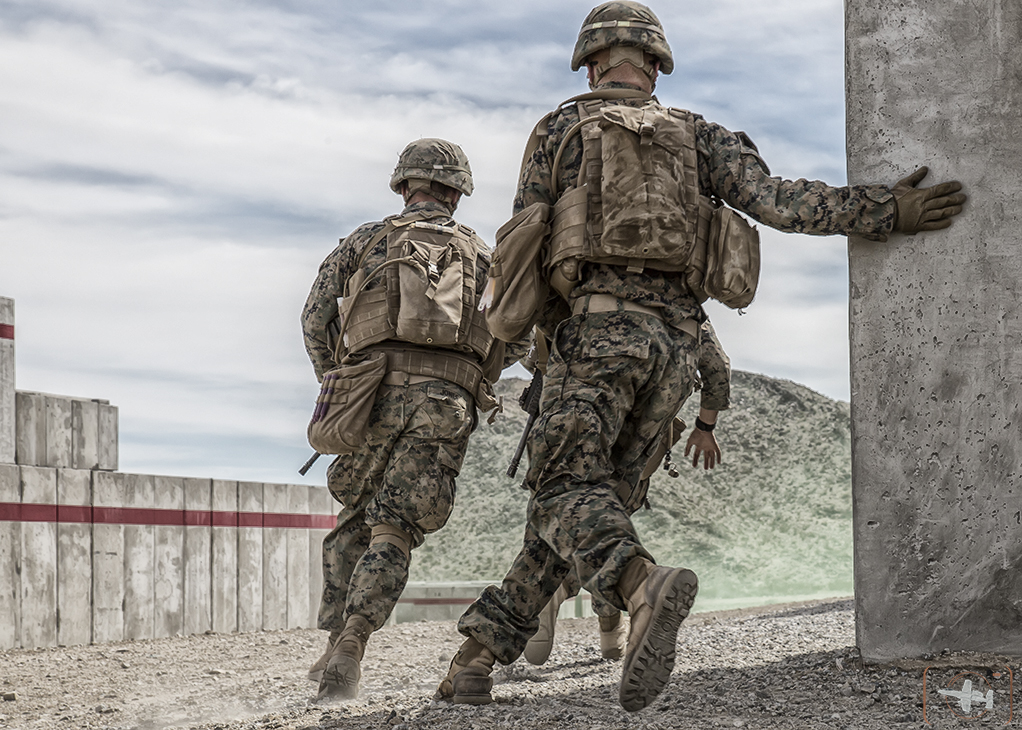
Marines from the 15th Marine Expeditionary Unit (MEU) BLT 1/5 make their way from one complex to another during live fire exercise, Realistic Urban Training (RUT). RUT is one of the 13 missions the 15th MEU must master prior to deployment. MCAGCC at Twentynine Palms, CA March 10, 2017.
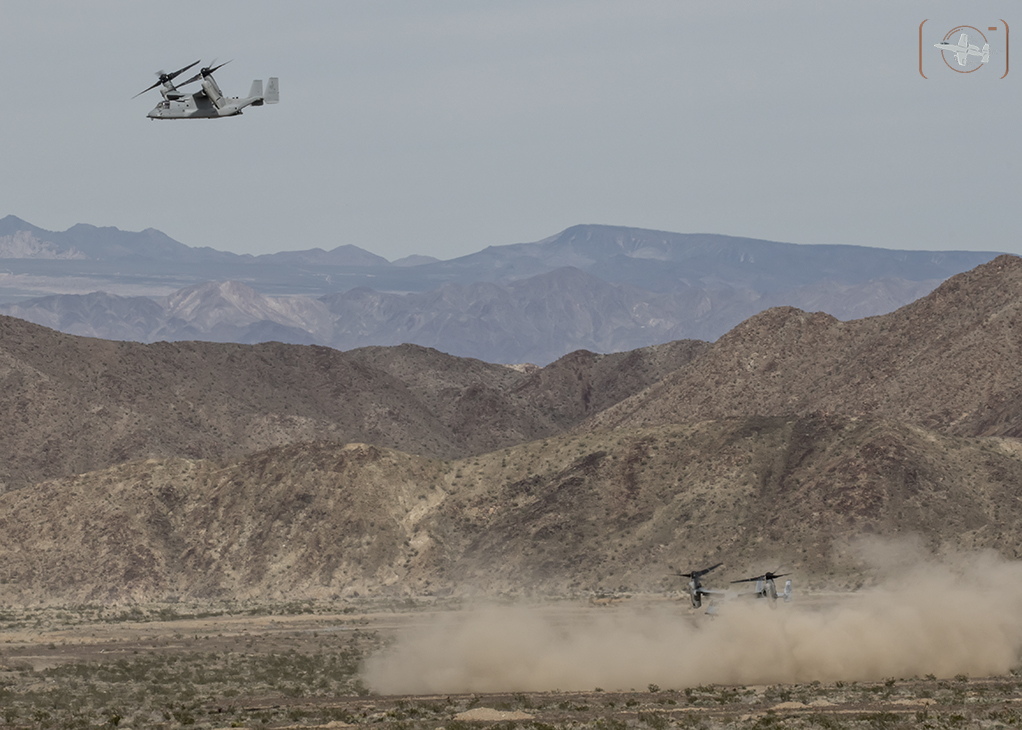
MV-22s of the VMM-161 Greyhawks (MCAS Miramar) leaving the danger zone with Marines from the 15th Marine Expeditionary Unit. Realistic Urban Training (RUT), MCAGCC Twentynine Palms, CA.
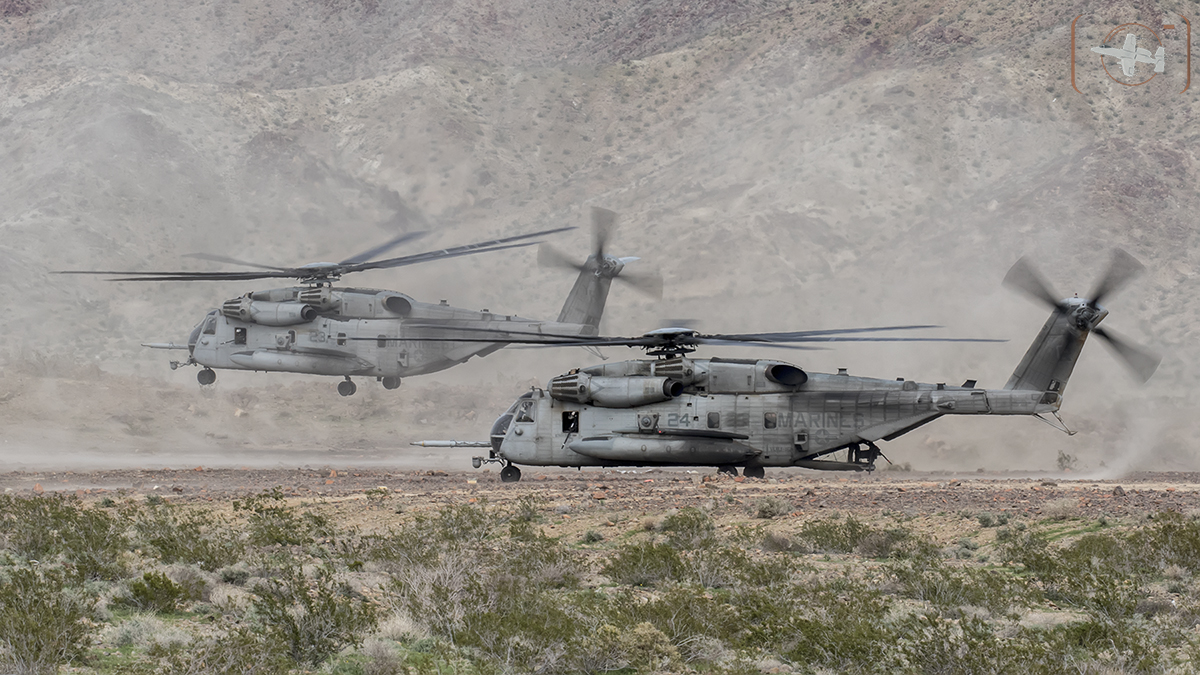
CH-53Es of the VMM-161 Greyhawks (MCAS Miramar) moving up and away full of Marines from the 15th Marine Expeditionary Unit (MEU). Realistic Urban Training (RUT), MCAGCC Twentynine Palms, CA.
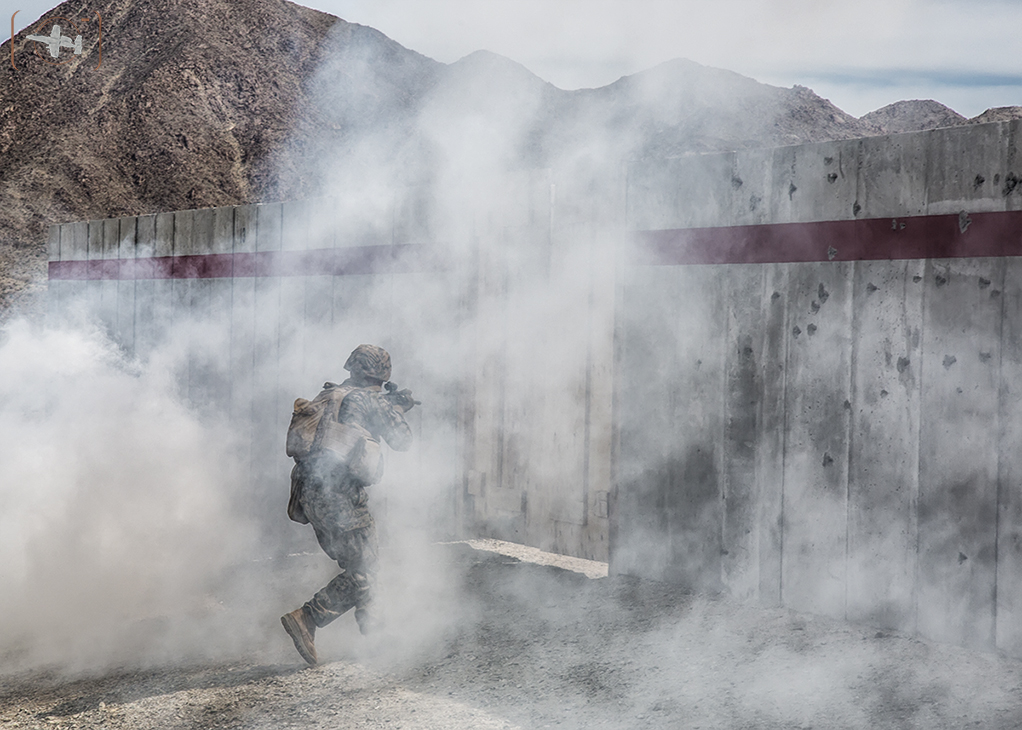
Marine from the 15th Marine Expeditionary Unit (MEU) BLT 1/5 makes his way through the smoke towards a complex doorway during live fire exercise, Realistic Urban Training (RUT). RUT is one of the 13 missions the 15th MEU must master prior to deployment. MCAGCC at Twentynine Palms, CA March 10, 2017.
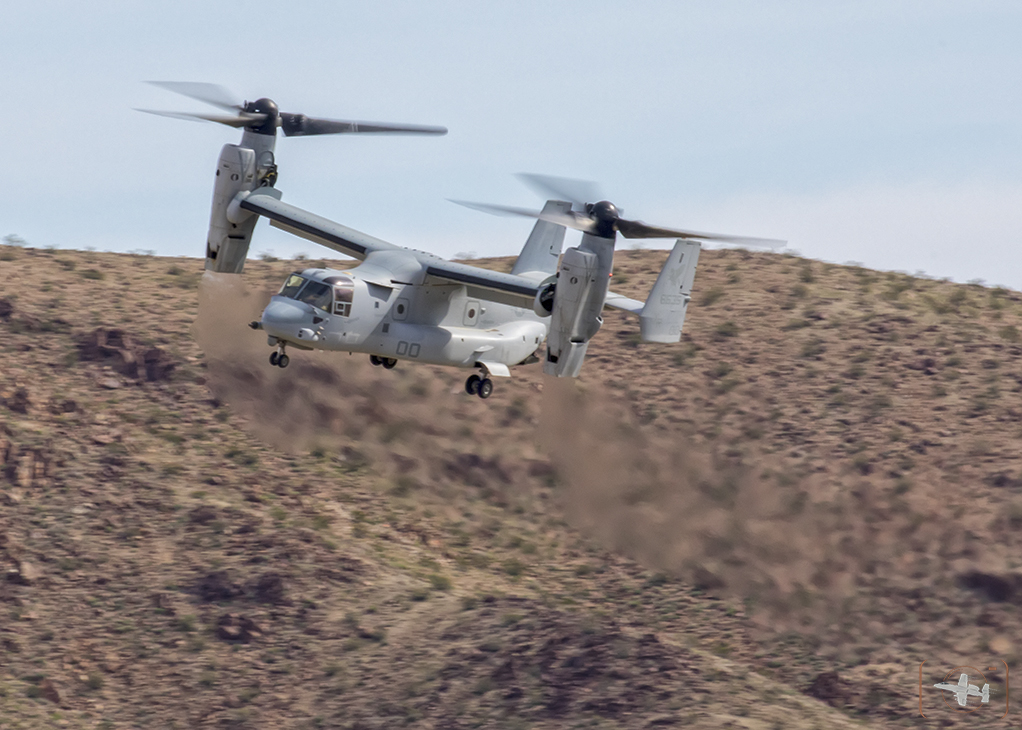
MV-22 Osprey from the VMM-161 Greyhawks on landing approach with Marines from the 15th Marine Expeditionary Unit (MEU). During Realistic Urban Training (RUT), live fire training as part of workups to deployment. MCAGCC, Twentynine Palms, CA.
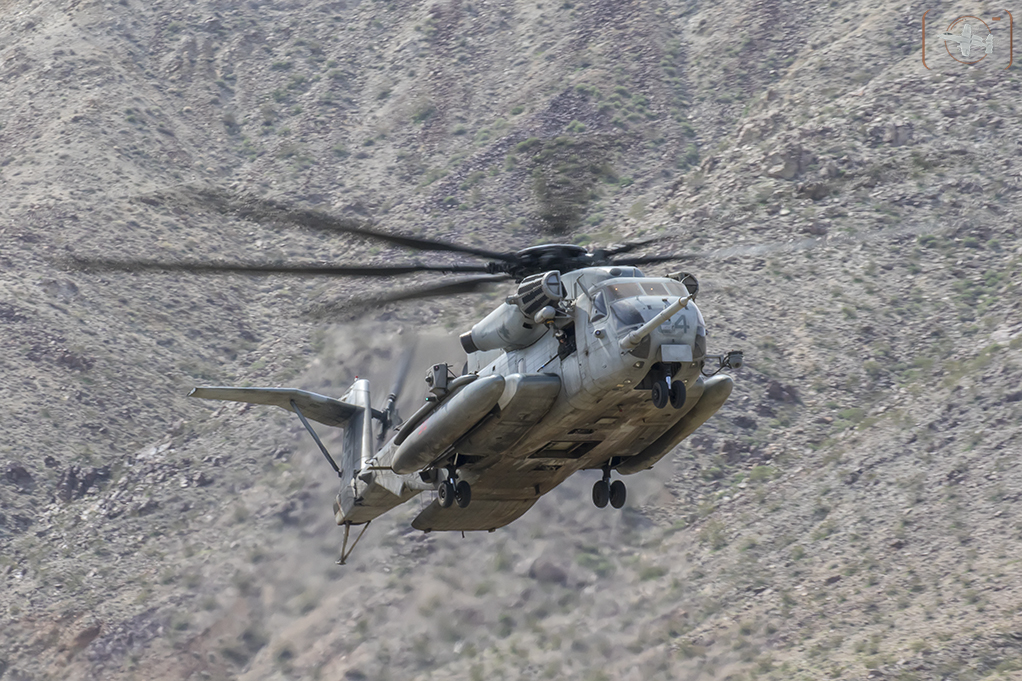
CH-53E from the VMM-161 Greyhawks of MCAS Miramar drops onto range with Marines from the 15th Marine Expeditionary Unit (MEU). The 15th MEUs live fire, Realistic Urban Training (RUT) is underway at MCAGCC Twentynine Palms, CA.
Click on an image below to page or swipe through the gallery:


